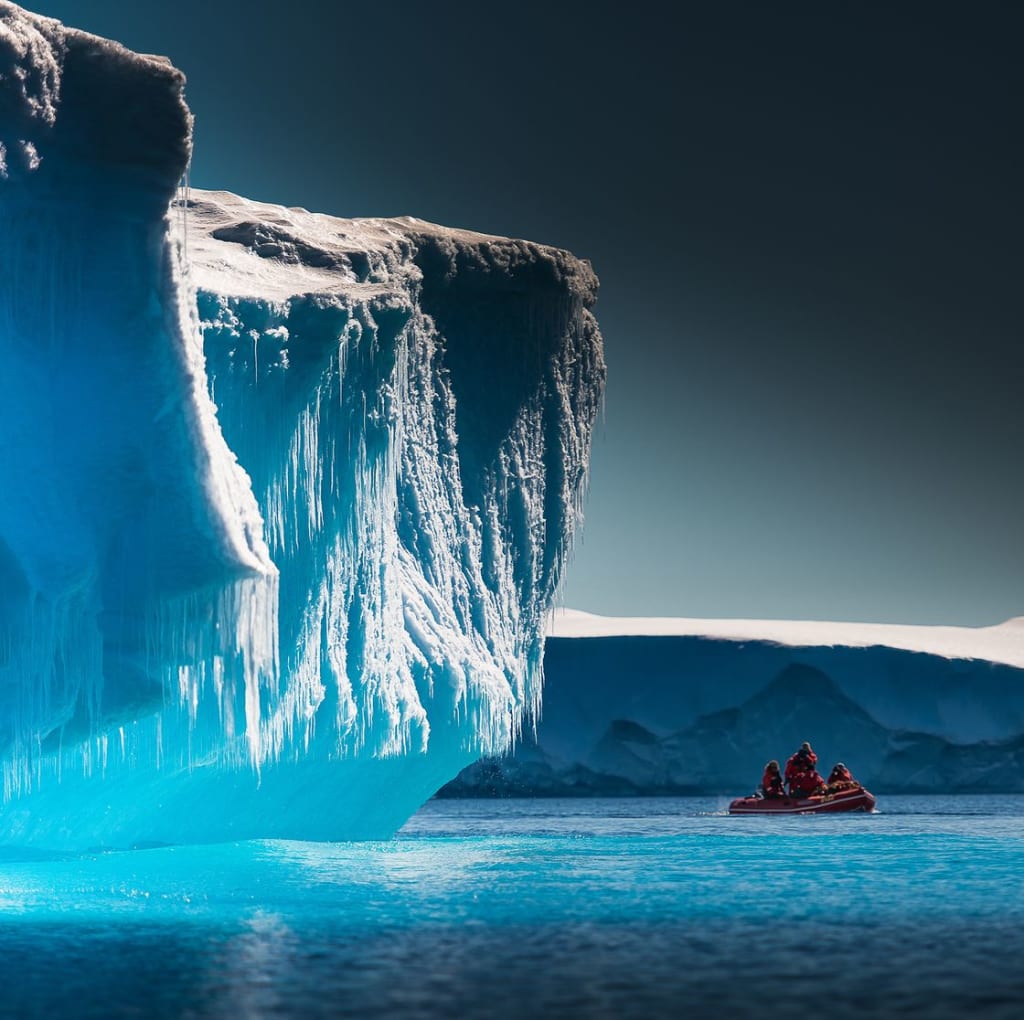THE TRUTH ABOUT ANTACTICA
Elon Musk has revealed the terrifying truth behind Antarctica

Deep within the vast expanse of the southernmost continent lies a hidden secret that has remained concealed for centuries. This secret is so profound that it has the potential to completely reshape our understanding of the world. Antarctica has always held a captivating allure unlike any other place on Earth. From tales of lost civilizations to rumors of extraterrestrial encounters, it has sparked the imagination of many.
Elon Musk, the visionary behind SpaceX, Tesla, and neurolink, has always been at the forefront of technological innovation. However, what if his relentless pursuit of knowledge has led him to uncover something far more extraordinary than he could have ever imagined? Equipped with cutting-edge technology and an insatiable thirst for knowledge, Musk has ventured into the treacherous landscape of Antarctica. And what he has discovered is nothing short of terrifying.
But what exactly has Elon uncovered? And what impact would it have on our understanding of planet Earth? Join us on this mind-bending journey as we unravel the unearthly secrets that Musk has recently unearthed beneath Antarctica's frozen surface.
Antarctica, a harsh and unforgiving frozen wilderness, stands as a solitary expanse of ice at the southernmost tip of our planet. Despite its brutal conditions, it holds the distinction of being the fifth largest continent. Its enigmatic nature has enticed researchers to establish settlements, and at any given time, a population of one thousand to five thousand people can be found braving its challenges.
Given its vast size and near-uninhabitable conditions, scientists have long been fascinated by Antarctica, believing that it conceals numerous secrets. The journey to uncover these secrets began when a group of scientists stumbled upon a million-year-old DNA sample in the Scotia Sea, located just north of Antarctica. This ancient genetic material, extracted from the depths of approximately 584 feet beneath the sea floor, is believed to have originated from diatoms, a type of phytoplankton.
While the specifics of the DNA remain a mystery, its mere existence was a revelation. It served as the catalyst for the notion that Antarctica had undergone significant changes throughout its history. The implications of this discovery are profound and could potentially reshape our understanding of the world as we know it.
Antarctica, the southernmost continent on Earth, remains one of the most enigmatic and pristine regions, largely untouched by human interference. This icy expanse, characterized by its extreme climate and vast expanses of ice, plays a critical role in regulating the planet's climate and sea levels. As we delve into the depths of Antarctica's mysteries, it becomes evident that this remote continent is not merely a frozen wilderness but a crucial component of the Earth's delicate ecological balance.
The Antarctic environment, with its breathtaking landscapes and unique biodiversity, stands as a testament to the resilience of life in the face of extreme conditions. From towering icebergs to expansive ice shelves, Antarctica's physical features are awe-inspiring, providing a glimpse into the geological forces that have shaped our planet over millions of years. Beneath the surface, the continent's ice conceals a treasure trove of scientific information, offering valuable insights into Earth's climatic history.
Scientific research in Antarctica has proven instrumental in advancing our understanding of climate change and its global ramifications. The ice cores extracted from its glaciers serve as a historical record, offering a timeline of atmospheric conditions and providing critical data for climate scientists. The continent's unique position as a natural laboratory enables researchers to study the impacts of human activities on the environment and explore the potential consequences for the rest of the world.
However, Antarctica is not immune to the challenges posed by climate change and human activities. Rising temperatures, melting ice, and shifting ecosystems threaten to disrupt the delicate balance that has existed for millennia. The international community faces the responsibility of preserving this last great wilderness, balancing scientific exploration with sustainable practices to ensure the long-term health of the continent and its surrounding oceans.
The Antarctic Treaty, established in 1959, stands as a beacon of international cooperation, designating the continent as a scientific preserve and prohibiting military activities. This agreement has fostered collaboration among nations, creating a platform for scientific discovery and environmental stewardship. As global issues such as climate change become increasingly urgent, the importance of this cooperative framework cannot be overstated.
In conclusion, Antarctica captivates the imagination with its beauty and challenges us with its environmental significance. It serves as a reminder of the delicate interplay between nature and human actions, urging us to act responsibly and collectively to safeguard the future of our planet. As we continue to unlock the secrets hidden within the ice, Antarctica remains a symbol of both the fragility and resilience of our global ecosystem, prompting us to strive for a sustainable and harmonious coexistence with the natural world
About the Creator
Enjoyed the story? Support the Creator.
Subscribe for free to receive all their stories in your feed. You could also pledge your support or give them a one-off tip, letting them know you appreciate their work.






Comments
There are no comments for this story
Be the first to respond and start the conversation.